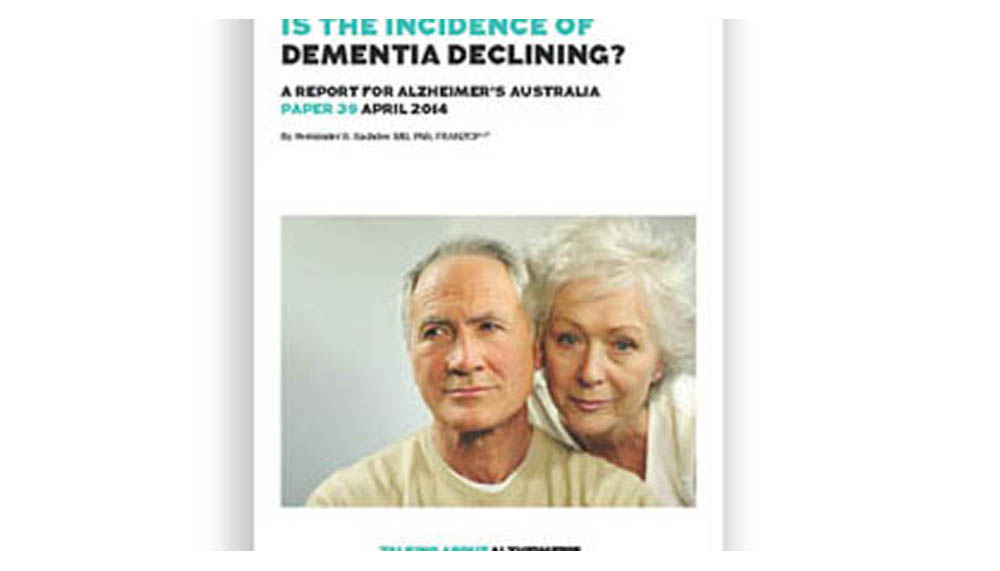Report: actions may shrink dementia risk

Report suggests lifestyle factors can have a substantial impact on prevalence.
New evidence suggests prevalence rates for dementia may not be set in stone.
“There is evidence from recent studies in Europe that the age-specific rates of dementia may be modifiable,” said professor Perminder Sachdev, recently appointed chief medical adviser to Alzheimer’s Australia.
“It is possible that environmental and lifestyle factors, such as diet and exercise, could make a significant contribution to reducing the risk of developing dementia.”
Sachdev, who authored the recently released Is the Incidence of Dementia Declining? For Alzheimer’s Australia, brought together research from the UK, Scandinavia, Central Europe and America that found variances in prevalence rates, neuropathy and risk factors for dementia among older people of successive generations.
“A study in the UK in 2011 found that the expected prevalence of dementia in people aged 65 years and older was estimated to be 8.1 per cent,” he said, “But the actual prevalence was found to be 6.5 per cent – a decrease of about 20 per cent from what was expected.”
Sachdev confirmed within his report that whilst evidence points to the reduced prevalence being substantial, “data collected thus far should be considered preliminary and more evidence must be accumulated”.
Ita Buttrose, national president of Alzheimer’s Australia, said that whilst evidence suggests prevalence rates of dementia have declined, the causes are still not well understood.
She said it may be the consequence of a “number of environmental factors, including better education and healthcare”.
“It remains true however that there are significant health factors, such as diabetes and obesity, that may increase dementia prevalence rates in the longer term,” she stated in the paper’s foreword.
“In spite of the decline in prevalence rates, the numbers of people with dementia will continue to increase with the ageing of the population,” she explained.
Alzheimer’s Australia CEO Glenn Rees said the report suggests the growth in new cases of dementia may be slowing over time and reiterates the importance of preventative health strategies in lowering a person’s risk.
“The differences are likely to be small – 1 per cent of less – but over time, and applied to the whole population, they could make a significant difference in the total number of people developing dementia over the coming decades.”
Rees called for “additional funding in Australia for epidemiological work that will lay a better basis for understanding the incidence and prevalence of dementia”.
Email: [email protected]




